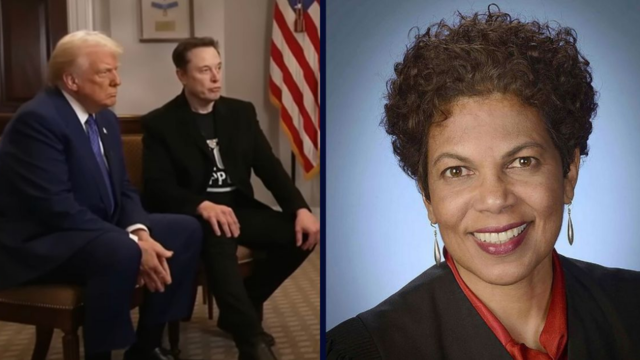A plea to prevent Elon Musk and the Department of Government Efficiency (DOGE) from accessing data and firing employees at multiple federal agencies in the executive branch was denied by a federal judge in Washington, District of Columbia, on Tuesday. This decision was a victory for the Trump administration. However, the triumph may not last for long because the court also expressed severe worries that Musk was a “unelected individual” who looked to be exercising “unchecked authority” within the government. This may cause the victory to be rather fleeting.
Judge Tanya Sue Chutkan of the United States District Court issued a ruling that was ten pages long and declined to award a temporary restraining order (TRO) that was requested by a coalition of fourteen Democratic states in a lawsuit that was filed last week. By delegating “virtually unchecked authority” to the tech billionaire without proper legal authority from Congress or “meaningful supervision of his activities,” the complaint asserted that President Donald Trump’s decision to grant sweeping power to Michael Musk and his associates at the Department of Energy (DOGE) violated the Appointments Clause of the United States Constitution.
The plaintiffs named Trump, Musk, and DOGE as defendants and asked the court to issue the temporary restraining order (TRO) in order to prevent further disruptions to the workforce and manipulation of data at the hands of Musk, who was described in the complaint as “a designated agent of chaos without limitation” and who was “in violation of the separation of powers.”
Following a hearing that took place on Monday, Chutkan informed the plaintiffs that their request would not be granted. He based his decision on the fact that the plaintiffs had failed to demonstrate that they would suffer “irreparable harm” in the absence of a temporary restraining order. The court must make such a showing in order to award the “extraordinary relief” of a temporary restraining order (TRO), and the mere “possibility of irreparable harm” does not provide a satisfactory resolution to the threshold problem.
The court is unable to reach a conclusion that the plaintiffs meet the high bar for irreparable loss based on the evidence that is currently before it. In his writing, Chutkan stated that the testimonies of the plaintiffs are filled with attestations that the plaintiff states will suffer substantial financial and programmatic injury in the event that Musk and DOGE Defendants cancel, halt, or significantly reduce federal financing or eliminate federal-state contracts. “The court is aware that the unforeseen acts of DOGE have resulted in a significant amount of uncertainty and confusion for Plaintiffs, as well as for many of their organizations and inhabitants. However, it is not sufficient to simply consider the ‘possibility’ that defendants might engage in activities that cause irreparable harm to plaintiffs.
Additionally, Chutkan underlined that the widespread media reports that DOGE is in the process of arranging another round of mass firings did not show the essential level of immediate injury that is required for the issuance of a temporary restraining order.
Chutkan made it abundantly clear that she is of the opinion that the plaintiffs’ allegations regarding the unconstitutionality of Musk and DOGE’s role in the government appear to be grounded in facts. This is despite the fact that the Trump administration was spared from being hampered by another federal judge during the first month that the president was in office.
Chutkan asserts that the plaintiffs “legitimately call into question what appears to be the unchecked authority of an unelected individual and an entity that was not created by Congress and over which it has no oversight.” This assertion is based on the fact that the legislature did not create the entity in question.
Citations were not included in her writing.
Having said that, the plaintiffs provide a colorable Appointments Clause claim that has significant repercussions. According to the Constitution, officers who wield “significant authority pursuant to the laws of the United States” are required to be nominated by the President and confirmed by the United States Senate. However, Musk has not been nominated by any of these bodies. Through the circumvention of this “significant structural safeguard[] of the constitutional scheme,” Musk has swiftly begun actions to substantially reshape the Executive Branch of government. The defendants themselves acknowledge that there does not appear to be any “source of legal authority granting [DOGE] the power” to carry out some of the actions that are being challenged in this case. Assuming that the claims made by the plaintiffs are accurate, the activities of the defendants in this case are exactly the “executive abuses” that the Appointments Clause is intended to avoid.




